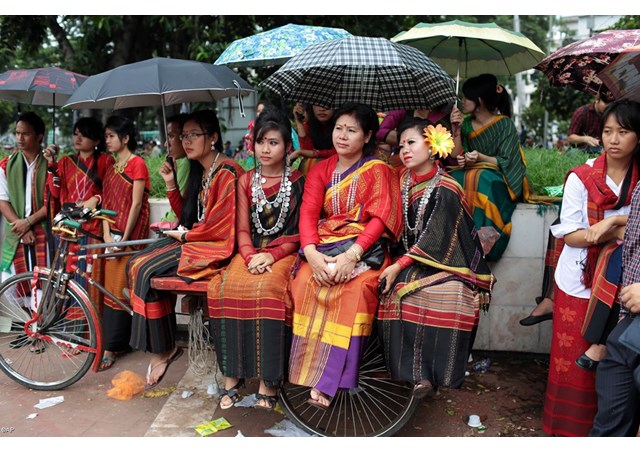
Violence 'rife' against Bangladesh's indigenous women

There is no justice for indigenous women and girls in Bangladesh who suffer physical and sexual violence, says a new report. More than 400 indigenous women and girls were victims of violence in the South Asian nation during 2007—2015, says a report by indigenous rights groups Kapaeeng Foundation and Indigenous Women Network. Included among 434 reported acts of violence were physical attacks, rapes and gang rapes.
The perpetrators in none of these cases were held accountable, activists say. "Numerically, the figure might seem low but in proportion of the indigenous population it is very high," said Shaheen Anam, executive director of Manusher Jonno Foundation, a Dhaka-based development group. "No justice in those cases of violence raises big questions about the treatment of minorities and the government must answer why culprits were not punished," she said.
“The vested quarters target them to grab land of the minorities. But the government does not take any proper measure to stop that despite civil society's repeated call for action, she said.
Almost all of Bangladesh's 160 million people belong to the Bengali ethnic group of which the majority are Muslims. A collection of 45 ethnic indigenous groups make up 3 million of the population. Most of them are Buddhist or animist and some are Christian.
Indigenous people are neglected and face violence because they are weak, said Theophil Nokrek, secretary of Catholic Bishops' Justice and Peace Commission.
"The church, Caritas and development groups are working to help and unite indigenous people against repression and violence, but their resources are limited," said Nokrek who is from the indigenous Garo group.
"Things can only change if the state takes initiatives to ensure rights and justice for indigenous people," he said. However, oppressors of the indigenous population are often backed by political leaders and financially influential people, he added.
Violence against indigenous women shows there is a failure in the rule of law in Bangladesh, said Catholic rights activist Rosaline Costa who is the coordinator of Hotline Human Rights Trust. "In indigenous areas, there is no rule of law and indigenous people are often neglected by administration and law enforcement. Police often refuse to take and investigate cases, so these women don't see justice and the crimes often go unreported," said Costa.
"The government needs to take effective steps to resolve land disputes which is a major cause of violence, and also treat indigenous people equally to deliver justice and to punish culprits," she said. "Otherwise, violence against indigenous women would continue unabated."
Initially, women repression in the hills was used as a "weapon of war" against the indigenous people but it has now turned into a tool for land grabbing, said Kapaeeng's research coordinator, Bipasha Chakma.
She points out that in most cases, medical tests gave a negative report denying any sign of rape, as police and other government officials were Bengalee, and they tried to save the perpetrators. In the last four months, 19 indigenous women suffered sexual violence and 12 of them including children were raped. Of the victims, two were killed after rape in Khagrachhari.
Barrister Sara Hossain, director of Bangladesh Legal Aid and Services Trust (BLAST), has said it had been almost two decades since the abduction of indigenous women's leader Kalpana Chakma in 1996 but a full investigation report never came up. If the abductors of Kalpana are tried, it would be possible to try such other crimes since the root causes of the denial of justice in these cases are the same, she said.
Sanjeeb Drong, secretary general of Bangladesh Adivasi Forum, says Bangladesh as a state is not friendly for women and for ethnic and religious minorities.
(Source: UCAN, Daily Star)
| All the contents on this site are copyrighted ©. |


